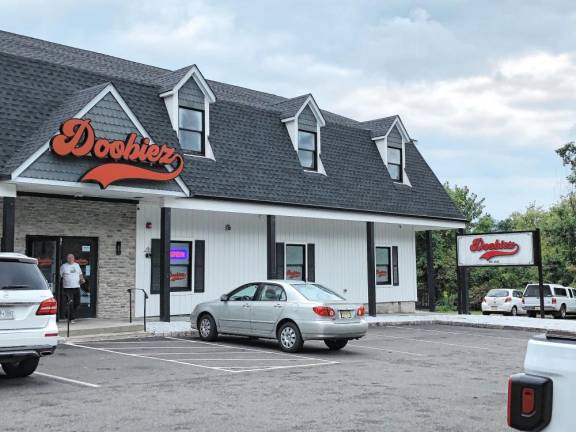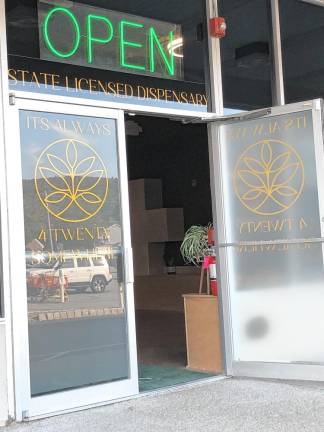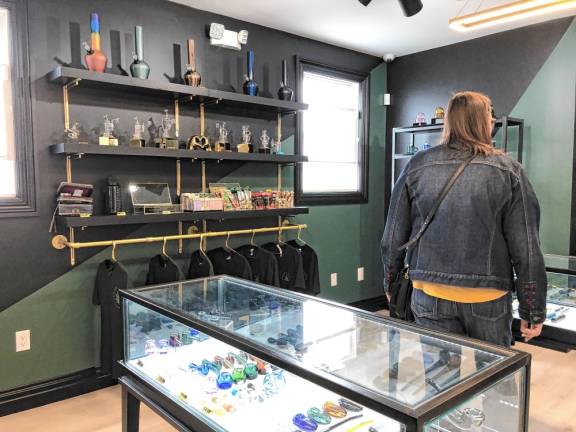Growing like a weed
Business. Cannabis shops and dispensaries are opening all over New York and New Jersey. Is there one near you?
The 2021 legalization of cannabis products in both New York and New Jersey has led to a burgeoning trade in what was once considered a legal and moral taboo - the cultivation, sale and consumption of recreational cannabis products, specifically those that contain tetrahydrocannabinol (THC) and cannabidiol (CBD). THC products, which are those with psychoactive properties that can cause a high, and CBD products, known for their calming medicinal effects, are both popular choices for people seeking non-pharmaceutical alternatives for medical conditions as well as for general recreational use.
For many producers, sellers, and consumers, these regulatory changes were a long time coming, moving them from the fringe of sale and usage into the spotlight and allowing a newfound sense of freedom from societal stigma and fear of legal consequences.
What do the regulations mean for consumers?
For New York residents aged 21 and over, the legalization of THC cannabis products means that they can possess up to three ounces of cannabis or 24 grams of cannabis concentrate, such as that in oils or edibles, for personal use. As of June 2024, of-age cannabis consumers may grow up to six plants per adult resident for at-home consumption, with the caveat that no more than three plants per person can be mature at a time. Home growers can legally harvest and possess no more than five pounds of cannabis flower. New York residents who held a prior conviction for cannabis possession that now falls within the legal parameters have had or will have their records expunged and sealed.
With the decriminalization of cannabis in New Jersey, residents aged 21 and over can now purchase up to one ounce of THC cannabis products in each transaction and can possess up to six ounces of product at one time. These regulations benefit not only recreational users but also those who wish to use cannabis as a medicinal treatment but may not fit the stringent guidelines for obtaining a medical card. Medical cardholders also may find that recreational dispensaries are more conveniently located than medical dispensaries and offer a wider variety of “over the counter” products not covered by their card. At this time, New Jersey residents cannot legally grow cannabis at home for personal use.
The decriminalization of recreational cannabis also led to the expungement of over 362,000 records in the first year of the regulations. Advocacy groups like the American Civil Liberties Union of New Jersey (ACLU-NJ) and the National Organization for the Reform of Marijuana Laws (NORML) are still calling for the state to expand the list of eligible offenses for expungement and release thousands of New Jerseyans incarcerated for non-violent, low-level cannabis charges. In both New York and New Jersey, revenues from taxed cannabis sales are invested in communities disproportionately affected by prior criminal cannabis laws, safe cannabis education, and public health and safety. New York reported over $16 million in revenue for fiscal year 2022-23, and New Jersey reported nearly $13 million in recreational cannabis tax revenue in the first quarter of 2024 alone.
It’s important for consumers to recognize the difference between regulations for THC cannabis products and CBD cannabis products. Because CBD products do not induce a psychoactive high, it’s not unusual to see CBD products in convenience stores, mass retailers, pharmacies, and even some grocery stores, but there are a growing number of stand-alone retail shops devoted to the sale of CBD products, as well as cannabis retailers who also carry CBD products. When it comes to dos and don’ts, THC cannabis products are subject to similar regulations as alcohol, and drivers who operate motor vehicles while under the influence of cannabis can be charged and prosecuted. It’s also illegal for consumers to move THC-based cannabis products across state lines, so items purchased in New York must stay in New York, and the same for New Jersey.
What can consumers find in a licensed cannabis shop?
New recreational cannabis users and even seasoned partakers might be surprised to learn about the wide array of products available to them at the area’s many retail shops.
At Andover Cannabis in Andover Borough, the lead budtender often finds himself helping an older clientele looking for pain relief and sleep aids.
“We’re locally owned and people know the family and trust our products because they tune into the needs of our community,” he said. “We sell a lot of bud and flowers, as well as gummies. Vapes are probably our third-biggest seller.”
Andover Cannabis also sells concentrates, such as dabs, for more seasoned users, as well as tinctures, topical products, and accessories. The budtender noted that many customers love the choices available to them, as well as the shop’s loyalty perks and discounts for medical cardholders.
Looking to start a recreational cannabis business?
Anyone interested in opening a cannabis business needs to first find out if they can establish themselves in their desired location, as zoning laws can be more prohibitive of THC-based businesses than CBD-based businesses. While New Jersey’s regulations, overseen by the Cannabis Regulatory Commission, do not restrict the number of THC-based businesses that can be established statewide, individual municipalities have the power to disallow cannabis enterprises. This includes the ability to opt in or out of each of the classes of business as defined by the regulations:
• Class 1: Cultivator
• Class 2: Manufacturer (processing/packaging)
• Class 3: Wholesaler
• Class 4: Distributor
• Class 5: Retailer
• Class 6: Delivery Service
• Unclassed: Testing Facility
In Sussex County, NJ, seven of 24 individual municipalities have opted in to allow cannabis businesses under their zoning and land-use ordinances. Those seven towns are Andover Borough, Andover Township, Frankford Township, Fredon Township, Newton, Sussex, and Vernon. Of those seven, four towns — Andover Borough, Newton, Sussex, and Vernon — have opted in for all classes of cannabis business.
Several Passaic County municipalities are also open to establishing cannabis businesses, including Bloomingdale, Haledon, Little Falls, Passaic, Paterson, and West Milford, the latter two both including all classes. Towns throughout New Jersey that opted out of allowing cannabis businesses when the regulations went into effect can opt back in at any time by following their standard procedure for passing resolutions and ordinances. It also should be noted that no town in New Jersey may restrict the home delivery of cannabis products not sold within their borders, and they may also not ban the sale of medical cannabis through a dispensary as it is illegal to withhold prescribed pharmaceuticals.
New York’s cannabis regulations have a similar impact on municipalities. In Orange County, mostly municipalities have opted out of allowing retail cannabis shops, with the exception of: Kiryas Joel, Palm Tree, Newburgh (city and town), Port Jervis, Town of Tuxedo, Town of Warwick, Woodbury (town and village), and Wawayanda.
The state’s Office of Cannabis Management handles all licensure for cultivators, processors, distributors, and retailers, but town and county governments do have the ability to pass and enforce zoning ordinances regulating establishments within their jurisdiction. It is also legal to cultivate small amounts of cannabis plants on personal property for home usage, and towns cannot override New York’s state regulations on growing cannabis at home. New York municipalities also cannot ban the sale of medical cannabis per state regulations.
In both New York and New Jersey, CBD-based businesses may find themselves subject to local zoning laws and must also follow key regulations regarding third-party testing and labeling of products and ingredients, as well as guidelines from the Federal Drug Administration (FDA). CBD products marketed as medical treatments must also comply with the state’s medical cannabis regulations. Hemp growers must also follow state Department of Agriculture regulations in conjunction with state cannabis regulations.
While the regulations may seem complicated, increasing numbers of entrepreneurs are choosing a business model and moving into the cannabis industry. And with the array of existing shops and new ones on the horizon, it’s clear that consumers will soon have even broader options when it comes to their recreational cannabis and CBD enjoyment.
To learn more about adult recreational cannabis use or licensure in New York and New Jersey visit cannabis.ny.gov or nj.gov/cannabis.


